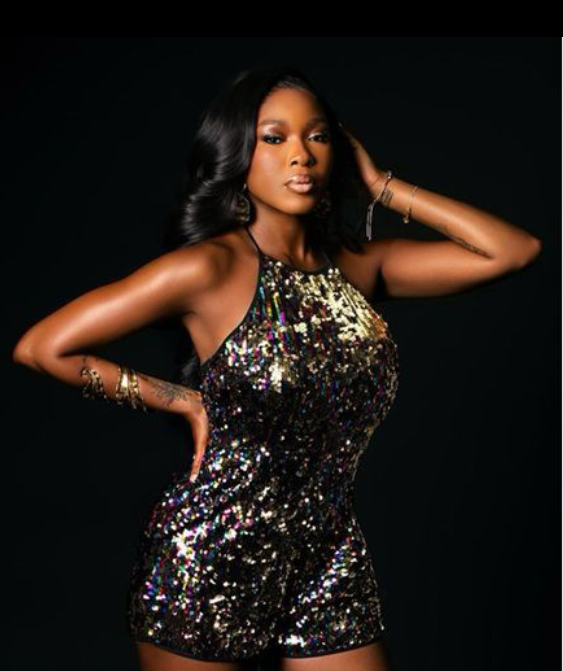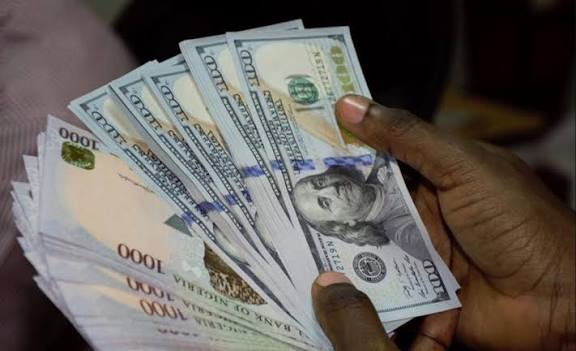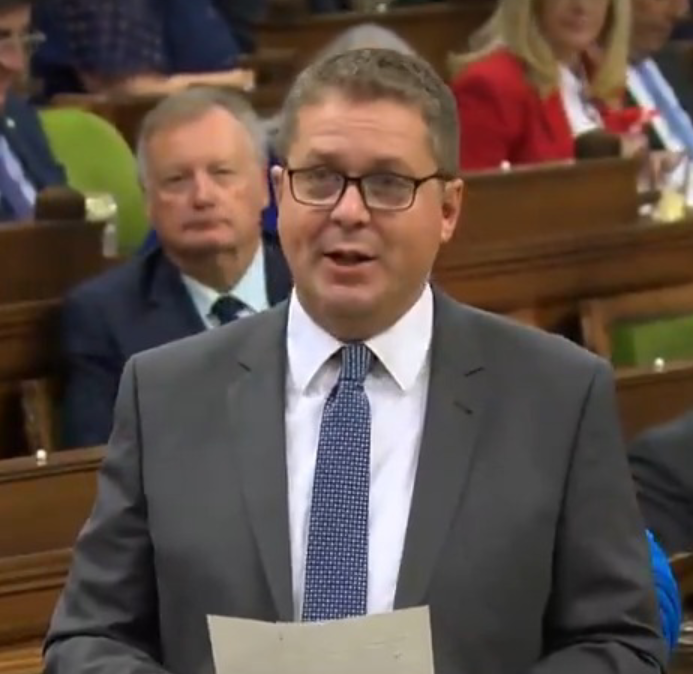
Vee Slams Lere Olayinka Over Insensitive Comment on Ibom Air Passenger Comfort

Reality TV star and singer, Vee, has sparked conversations online after she publicly called out Rivers State Minister Nyesom Wike’s media aide, Lere Olayinka, over a controversial remark he made about Ibom Air passenger Comfort, who has been at the center of a recent viral incident. The drama began when Olayinka took to social media to comment on the trending saga involving Comfort, whose arrest and imprisonment over alleged unruly behavior on an Ibom Air flight has dominated headlines in recent days.
In a post that many deemed distasteful and shaming, Olayinka wrote, “When you don’t keep your private parts private, airport people will help you to further expose them. DAZZOL.” His comment, laced with insinuations, quickly drew backlash from Nigerians who felt it was insensitive, misogynistic, and completely uncalled for given the gravity of Comfort’s current situation. Many accused the media aide of using Comfort’s ordeal as an avenue to throw veiled insults at women and perpetuate stereotypes about female dignity and morality.
Vee, whose real name is Victoria Adeyele and who rose to fame as one of the most outspoken housemates in the Big Brother Naija “Lockdown” season, did not hold back in her reaction. Quoting Olayinka’s tweet, she wrote pointedly, “This is someone’s ‘best dad in the world.’” The sarcastic remark appeared to mock the moral image Olayinka often projects online, suggesting that his comment did not reflect the wisdom, empathy, or decorum expected of a public figure, let alone a parent.
Olayinka, unfazed by the backlash, responded with another tweet that only fanned the flames. He wrote, “A celebrity is made already… Plenty DM. Even bad publicity is still publicity. In all things…” Many interpreted this as him doubling down on his earlier stance, dismissing criticism as irrelevant and framing the incident as nothing more than another moment in the social media circus.
The entire exchange quickly gained traction on X (formerly Twitter), drawing thousands of comments from netizens divided between those defending Vee’s clapback and those backing Olayinka’s right to “say it as he sees it.” While some saw Vee’s reaction as a necessary stand against the shaming of women in public discourse, others accused her of hypocrisy and selective outrage, pointing to past instances where she herself had been accused of making controversial or blunt statements about others.
This latest social media clash comes at a time when public opinion on Comfort’s case is already heated. Comfort’s arrest, reportedly following a confrontation with Ibom Air staff, had initially split Nigerians into two camps — those who felt she was unfairly treated and subjected to excessive punishment, and those who argued that her alleged behavior on the flight was unacceptable and deserving of consequences.
Olayinka’s comments, however, took the matter beyond the legal and procedural aspects of the case and into the murky territory of personal morality, prompting critics to question why a government spokesperson would insert himself into the narrative with what many perceived as a personal attack. Feminists and gender rights activists have been especially vocal, calling out what they describe as a “pattern” in public discourse where women’s bodies are used as weapons in arguments, regardless of the actual issues at stake.
Vee’s involvement has only intensified media attention on the matter, with her large social media following amplifying the outrage over Olayinka’s choice of words. Some supporters have praised her for speaking up when many public figures chose to remain silent, while others have accused her of “chasing clout” and inserting herself into trending issues for relevance.
Observers note that this is not the first time Vee has found herself in the middle of online controversy. Known for her sharp tongue and unfiltered opinions both in and out of the BBNaija house, she has a reputation for confronting individuals who make what she perceives to be unjust or offensive remarks. However, the target in this case being a senior government media aide has added political undertones to the exchange, with some critics accusing Olayinka of tarnishing the image of the office he represents.
Interestingly, Olayinka’s dismissal of the outrage as merely “publicity” has also sparked debates about the state of political communication in Nigeria. Analysts point out that public officials are increasingly using social media to air personal opinions without regard for the potential impact on public trust or the sensitivity of ongoing legal cases. The fact that Olayinka seemed to relish the attention from his comments, rather than retract or clarify them, has been viewed by many as a sign of the growing normalization of provocative, attention-seeking political rhetoric.
Meanwhile, Comfort remains at the center of the original controversy, with advocacy groups calling for her case to be handled with fairness and dignity. While recent developments suggest that there may be moves to resolve the matter outside prolonged legal proceedings, the ongoing social media chatter continues to shape public perception of both her and the incident.
As for Vee, her confrontation with Olayinka appears to have cemented her position as one of the few Nigerian celebrities willing to directly challenge politically connected figures on issues of gender and public morality. Whether this will translate into wider support or further criticism remains to be seen, but for now, the exchange has kept both her name and Comfort’s in the headlines.
The saga highlights a recurring dynamic in Nigerian online spaces — where political figures, celebrities, and ordinary citizens clash in real time over high-profile incidents, with each camp seeking to shape the narrative to their advantage. In this case, what began as a dispute over alleged misconduct on a flight has spiraled into a broader conversation about the ethics of public commentary, the treatment of women in public discourse, and the role of influential figures in either perpetuating or challenging harmful narratives.
As the dust settles on this latest bout of online warfare, one thing is clear: in the age of social media, the line between political discourse, celebrity culture, and public morality is increasingly blurred. And in that space, sharp words — whether from a government aide or a reality star — can ignite conversations that far outlast the original incident.


